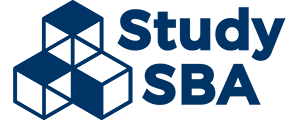In the fast-paced and ever-evolving world of business, sophomores pursuing a Bachelor of Business Administration (BBA) need to strategically enhance their employability to stand out in competitive job markets. Specializations in accounting, finance, international business, information systems, management, marketing, supply chain, business analytics, and business intelligence offer vast opportunities, but they also demand a proactive approach to skill development and practical experience. Here’s how you can increase your employability value:
1. Niche Specialization
Identify and specialize in a niche within your BBA program. Be it digital marketing in the marketing field or financial analysis in finance, specialized knowledge sets you apart from your peers.
2. Internships and Practical Experience
Pursue internships actively. Real-world experience is invaluable and sets a strong foundation for your career. This is where you apply theoretical knowledge to practical scenarios.
3. Networking
Build your professional network early. Engage in industry events, join professional bodies, and participate in networking opportunities. These connections can lead to mentorships and job opportunities.
4. Engaging with ThinkerBox
Participate in ThinkerBox, a division of the SBA focusing on STEAM education. Here, learn about starting a business, crafting marketing campaigns, utilizing analytics, managing customer service, and dealing with manufacturers. This involvement offers a practical understanding of business operations, especially in educational technology and innovation.
5. Develop Soft Skills
Soft skills like communication, teamwork, problem-solving, and leadership are highly valued by employers. Engage in extracurricular activities and take leadership roles to hone these skills.
6. Certifications and Additional Courses
Enhance your qualifications with relevant certifications and additional courses. This shows commitment to continuous learning and expertise in your field.
7. Stay Updated with Industry Trends
Keep up with the latest trends in your field. Read industry journals, follow thought leaders, and attend webinars to stay informed.
8. Personal Projects
Initiate personal projects related to your field. This demonstrates initiative and practical application of your skills.
9. Leverage University Resources
Use your university’s career services for career fairs, workshops, and counseling sessions.
10. Build a Strong Online Presence
Create a professional LinkedIn profile to showcase your skills and achievements. Regular updates and engagement with industry content are crucial.
11. Technical Skills Development
Acquire technical skills relevant to your specialization. For example, data analysis software for finance or CRM tools for marketing.
12. Cultural Awareness and Language Skills
In today’s global business environment, cultural awareness and language skills are increasingly important, especially for roles in international business.
13. Feedback and Continuous Improvement
Seek and utilize feedback from professors and internships for self-improvement.
14. Plan for Further Education
Consider further education opportunities like an MBA or specialized master’s programs to enhance your knowledge and career prospects.
By focusing on these key areas, you can significantly enhance your employability, making yourself a more attractive candidate to potential employers upon graduation. Starting early and being proactive in your approach are essential to achieving success in the dynamic and competitive world of business.





